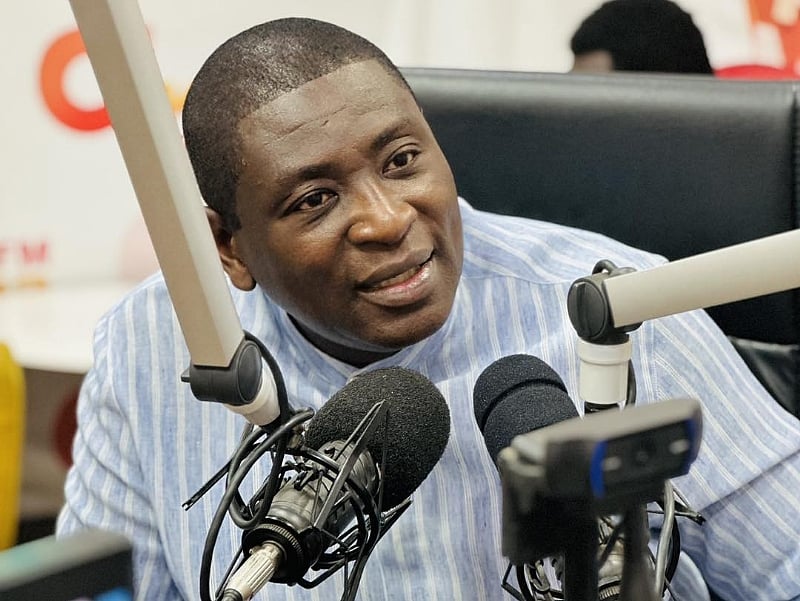The ongoing debate surrounding the nature of Ghana’s recent power outages has taken center stage, with differing perspectives emerging regarding whether the country is experiencing “dumsor,” a term synonymous with the debilitating power crisis that plagued the nation under the previous Mahama administration. Kojo Poku, a former flagbearer aspirant of the New Patriotic Party (NPP), has vehemently rejected the “dumsor” label, arguing that the current situation stems from infrastructural challenges within the energy sector rather than an inadequate supply of electricity. This distinction is crucial, as it differentiates the current intermittent outages from the systemic power deficit that characterized the previous crisis. Poku contends that Ghana possesses sufficient power generation capacity to meet the nation’s demands, thereby negating the core definition of “dumsor,” which implies a shortfall in supply relative to demand. He attributes the disruptions to ongoing infrastructure projects, specifically citing the construction of a bulk supply point in the Ashanti Region, which, he claims, was poorly communicated to the affected populace, leading to confusion and frustration.
Poku’s assertion that Ghana’s current power woes are infrastructure-related highlights a critical aspect of the energy sector: the importance of robust and well-maintained infrastructure to ensure reliable power distribution. While sufficient generation capacity is undoubtedly essential, it is rendered ineffective if the infrastructure responsible for transmitting and distributing that power is inadequate or undergoing disruptive upgrades. The situation in the Ashanti Region exemplifies this challenge, where the construction of a new bulk supply point, while ultimately beneficial, has led to temporary disruptions in power supply. Poku’s criticism of the communication surrounding this project underscores the need for transparent and timely information dissemination to manage public expectations and mitigate anxieties during such transitional phases. Effective communication can significantly reduce public frustration and foster a sense of understanding regarding the necessity of such infrastructure upgrades.
Despite Poku’s claims of adequate generation capacity, the persistence of power outages across various parts of the country has fueled public concern and skepticism. Businesses and individuals continue to experience disruptions in their daily activities, leading many to question the government’s narrative regarding the situation. The persistence of these outages, despite assurances of sufficient power supply, raises questions about the effectiveness of the existing infrastructure and the overall management of the energy sector. It also underscores the need for a thorough assessment of the distribution network to identify and address potential bottlenecks hindering consistent power delivery.
The public’s growing frustration with the unpredictable nature of the power outages has prompted calls for a proactive approach from the government, specifically the implementation of a load-shedding timetable. This demand reflects a pragmatic desire for predictability, even in the face of power disruptions. A structured load-shedding schedule, although undesirable, would allow individuals and businesses to plan their activities accordingly, minimizing disruptions and maximizing productivity. The absence of such a schedule exacerbates uncertainty and undermines confidence in the government’s ability to manage the situation effectively.
The contrasting narratives surrounding Ghana’s power challenges – sufficiency of generation capacity versus persistent outages – highlight the complexity of the issue and the need for a comprehensive approach to address it. While Poku emphasizes the adequacy of supply and attributes disruptions to infrastructural upgrades, the public’s lived experience of frequent and unpredictable outages paints a different picture. This disconnect between official pronouncements and the reality on the ground fuels skepticism and underscores the importance of transparent communication and decisive action from the government.
Ultimately, resolving Ghana’s power challenges requires a multi-pronged approach. While investments in generation capacity are essential, equal attention must be given to strengthening and modernizing the distribution infrastructure. Transparent communication with the public is crucial to manage expectations and foster understanding during periods of disruption. Furthermore, proactive measures such as the implementation of a load-shedding timetable, albeit a temporary measure, can provide much-needed predictability and mitigate the negative impact of power outages on businesses and daily life. A comprehensive and transparent approach that addresses both supply and distribution challenges, coupled with effective communication, is essential to restore public confidence and ensure a reliable and sustainable power supply for all Ghanaians.














